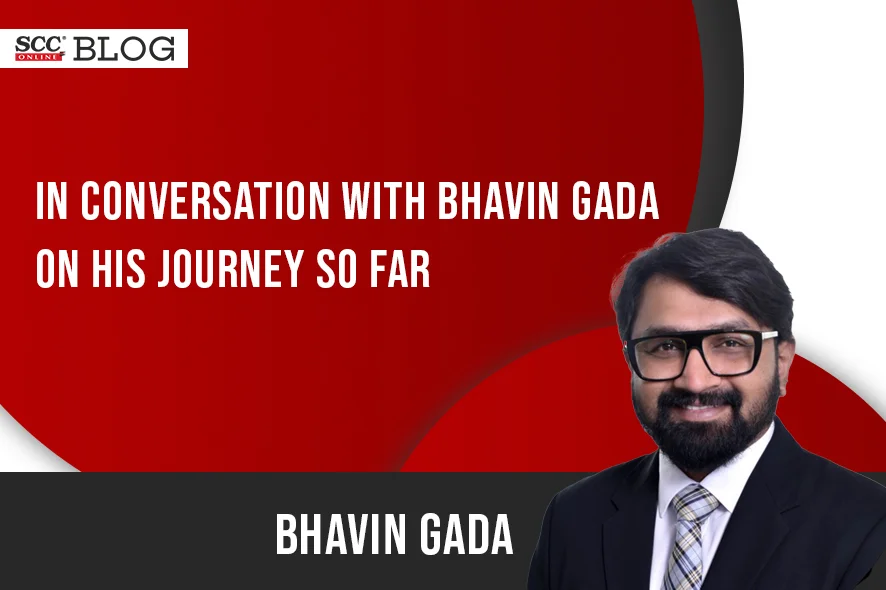1. To start with, could you take us over your journey in law — right from the beginning to being the one of the top lawyers in India?
As a first-generation lawyer and oriented from a business family, my journey in law started as a matter of a serendipitous choice. In my first internship, I started out with a trial lawyer as a court clerk. On the day I received my sanad, I argued my first case for three days under a lawyer at the High Court of Bombay — and we came out successfully. There has been no looking back since. I moved to the corporate side and worked with various teams — rolled-out IPOs, worked in Mergers and Acquisitions (M&A), advised in the real estate sector, while also being active as a litigation practitioner. I have maintained my interest in being an all-rounder in the corporate field. My team at Stratage Law Partners is 360 degrees agile, adaptable and readily exposed to the various facets of law. We now aspire to move even more ahead with collective experience, strategy and innovation.
2. What have been the challenges faced by you at workplace, and in the field of law — and what is your mantra in overcoming them?
As a leader and senior partner, I have to manage not only deals but also emotions of my colleagues. If I reflect my mood permeably for the colleagues and their juniors — it might be a snowballing effect. So, I like to keep calm, and maintain a positive outlook. On days when I need guidance, my set of mentors are the ones who confirm my choices and approach in ways I can grow from.
3. How important are researching skills for you — at a senior level do you expect your juniors to be well-versed with databases such as SCC OnLine/EBC Reader?
Research is the focal point of lawyering. Gone are the days where one would have to research through multiple books in libraries, as now, everything has become digitally concise, precise and handy. SCC OnLine has made life so much easier for the legal professionals — know the right “trigger” word, and get the most accurate ratio that you were looking for. Furthermore, the headnotes make the researcher’s navigation easier, as they provide an insight to the case which saves time. In the times of today, a lawyer must be adept at researching with the practicable tools available.
4. Can you share with us some insights from the up-and-coming fields in the M&A space?
India is the best spot to be right now — and even for the upcoming decade. The geopolitical and economic situation globally is driving India to become a great market for not only investors but also lawyers. A considerable fallout is expected in private equity, and even that is an employment opportunity for the lawyers. The M&A trends, from a business point of view, are indicative of a rise in the manufacturing, hospitality, and IT (including Fintech) sectors.
5. You have faced contingencies and unprecedented challenges in your career, such as the pandemic. Do you anticipate/foresee industry change caused by AI in the legal field?
Artificial intelligence (AI) is going to supplement and complement lawyering, but not replace it. A human cannot explain their feelings to an AI, but a smart lawyer with a sense of emotional understanding can appropriate the emotion as a tool to the client’s best interest.
6. Do you believe a holistic approach is better suited for young lawyers, or should they focus more on specialising one skill/area of interest?
The market, at present, incentivises both the type of lawyers. It is my belief that a good lawyer will come up with commercially viable solutions which will benefit the clients in more ways than purely legal. In the practical sense, a holistic approach enables you to not only deal with your superiors at a law firm, but also the clients — whether they are fund managers, or promoters, or other administrative officers. In essence, what matters is how as a lawyer, you are able to deliver an effective and intensively impactful advice.
7. Having acquired education as Masters of Business Law from NLSIU, Bangalore, how do you believe your business understanding helps you in making better legal decisions? Would you recommend further studies to young lawyers?
My intent of pursuing MBL came after a break — after I was finished with BCom and LLB. I have had an innate desire to understand law in depth, and my commercial understanding has aided and added to that desire. An academic course alone cannot build business acumen, and one needs to undertake upon themselves a constant commitment to build it – to successfully translate the “master” of the MBL.
8. What is one thing you wish you had done better, or would advise the readers to focus more on?
As a first-generation lawyer, I have enjoyed my journey so far and do not regret a single thing. But as you may have heard, law is a jealous mistress. I am driven by an intellectual kick which comes from my absolute love for law — so I do not stop here or now and encourage the readers to absolutely fall in love with law. Discover the undiscovered — and anything else you seek from this profession, be it money or fame, it will follow as byproduct.
9. Could you share with us any anecdote which helped you in being more certain of your career choice — it could involve a quote/book/movie inspiration as well.
“Intelligent individuals learn from everything and everyone; average people, from their experiences. The stupid already have all the answers.”
— Socrates







